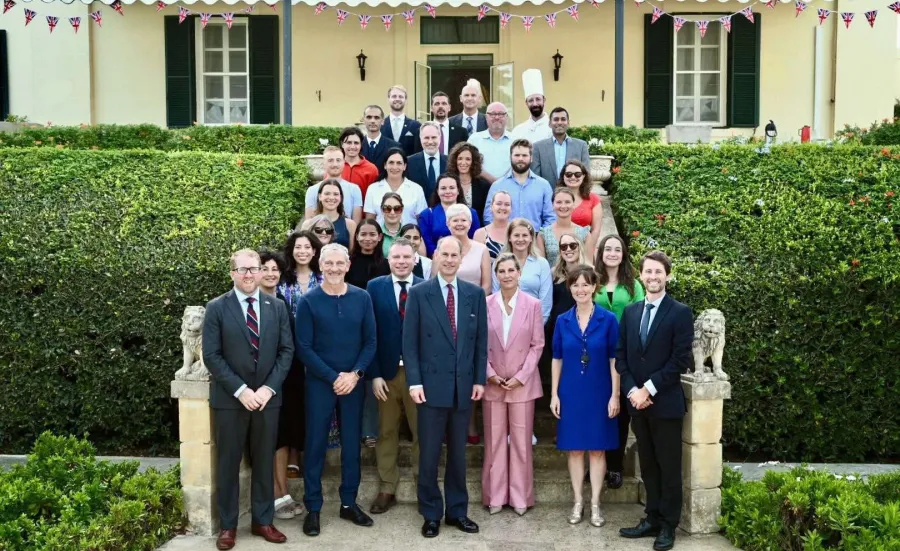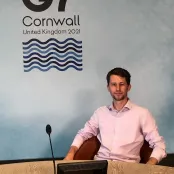Jacob graduated in 2018 with a BA History and French degree and went on to build his career as a diplomat.
I chose Southampton as it was one of the best UK universities offering dual honours in history and French. Avenue Campus was also a big factor in my decision to study to here. I was charmed by the small and modern feeling of Avenue, where I spent most of my time.
My favourite aspect of my degree was the easy access to my university professors. They were always willing to give their time to discuss and guide me with the different aspects of coursework.
Building my career as a British diplomat
After graduating, I went to work with the Foreign, Commonwealth and Development Office (FCDO). One of my first roles was acting as a Delegation Liaison Officer for France for the NATO 70th Anniversary Leaders’ Summit in 2019.
I worked for the Repatriation Cell during the Covid pandemic in 2020 and then I went on to work at the G7 Leaders’ Summit in Cornwall in 2021.
After passing my Spanish exams I continued my diplomat training at the École Militaire in Paris in 2023.
I’m very proud to have just returned from Malta, where I served for a year as a British diplomat at the British High Commission Valletta. One of the highlights was leading the Royal visit of the Royal Highnesses the Duke and Duchess of Edinburgh to Malta.
I’ve just marked my sixth anniversary working with the FCDO and have a new job as EU Desk Officer in HQ in London. My responsibilities include briefing ministers, liaising constantly with our Mission to the EU, particularly on EU Presidencies, and acting as the main FCDO point of contact for the EU Delegation to the UK.
Developing transferrable skills
The transferrable skills that I acquired at university have consistently helped me in my career. Some skills I attribute to French and others to history and these include:
- language skills - a specific language is a lifelong skill that separates you from the crowd, but you need to maintain it
- people skills - I credit this to my language studies, as when learning foreign languages, you need to put yourself out there, be an extrovert and go beyond your comfort zone
- critical analysis - much of my job involves understanding other countries’ political systems and advising senior officials and ministers on these. History was a great basis for evaluating and comparing sources, compiling evidence and reaching reasoned conclusions
- quality writing - history was a great introduction to producing quality written work. My essays combined deliberate analysis and cohesive structures with the limitation of word counts – a feature of all good diplomatic reporting
Reflecting on my career
My time at Southampton laid the foundation for my exciting experiences as a British diplomat. I would encourage current students to "get stuck in" and make the most of their university years. Language students should spend as much time as possible socialising with native speakers to improve their skills.
It’s extremely tough to become a diplomat but there are plenty of careers where you can go overseas, and all forms of business and negotiation involve diplomacy.

